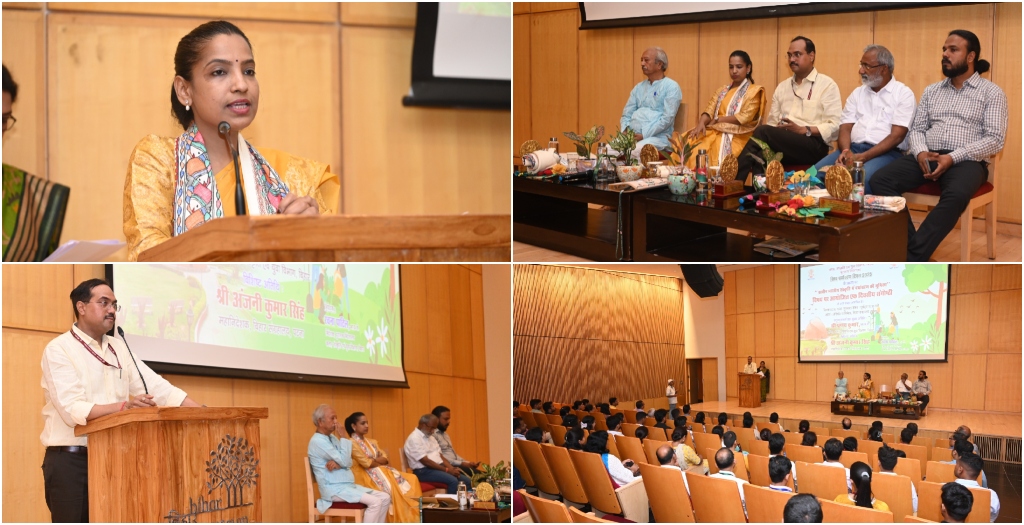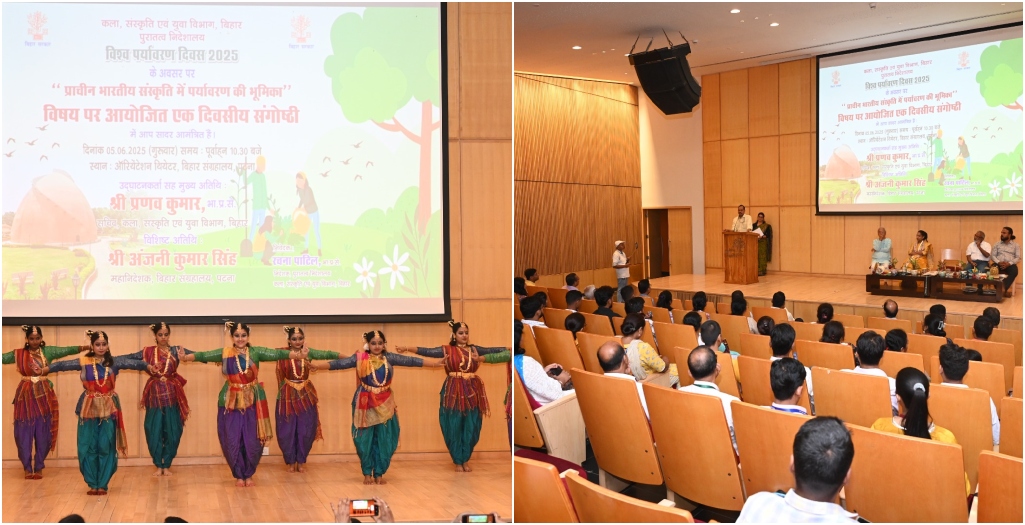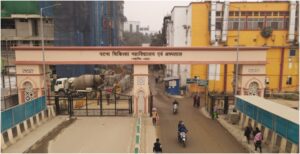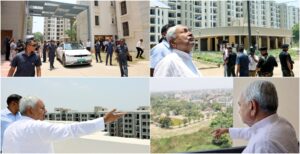
Patna: On the occasion of World Environment Day, a one-day seminar titled “Role of Environment in Ancient Indian Culture” was held at the Orientation Theater of Bihar Museum, Patna. Organised by the Department of Art, Culture and Youth in collaboration with the Directorate of Archaeology, the event brought together leading scholars, officials, students and cultural figures to reflect on India’s ecological heritage.
The programme commenced with a traditional lamp-lighting ceremony led by department secretary Pranav Kumar, director of the Directorate of Archaeology and Museum Rachna Patil, and invited speakers.
In her welcome address, Patil greeted the attendees and emphasised the importance of cultural awareness in environmental protection. “It is my aspiration that all of you learn deeply from this programme about why the environment needs to be protected,” she said.
Speaking next, Kumar addressed the pressing issue of environmental degradation. He warned that “many islands around the world are under threat of extinction” and highlighted how Indian spirituality has long celebrated nature. “Our traditions have revered trees, mountains, rivers, and even clouds. Environment is our shield—it protects us. Its conservation is our moral responsibility,” he said.
A dance performance directed by Sudipa Ghosh and Sangeeta Raman followed, artistically conveying environmental messages through classical expression.
The academic session began with Ravi Korisethar of Karnataka University, Dharwad, presenting on “Human Response to Climate Change during the Late Quaternary in South Asia.” He explored how ancient societies adapted to shifting climates, reminding the audience that human life depends on a supportive environment.
Former ASI official S.B. Ota delivered a lecture on “Archaeology and Environment,” using the Bhimbetka World Heritage Site as a case study. He described threats to the site and stressed that “forests are saved by awareness, not force.”
The final talk, “Landscapes of Time: Tracing Environmental Change and Cultural Response in Ancient India,” was given by Praveen Sukumaran of Charusat University, Gujarat. He argued that modern technology has distanced us from nature and urged for historical insight to shape sustainable futures.
Each lecture was followed by group discussions, allowing students and researchers to exchange ideas and engage deeply with the subject.
The seminar concluded with an emotional short play on environmental protection, staged by Madhyam Foundation from Sonaru, Fatuha. The performance highlighted the ecological crisis and the human values needed to combat it.
Held in the heart of the city at the Orientation Theater of Bihar Museum, the seminar saw enthusiastic participation from over a hundred students, academics, officials and cultural practitioners—uniting tradition, science and awareness in the call for environmental responsibility.





